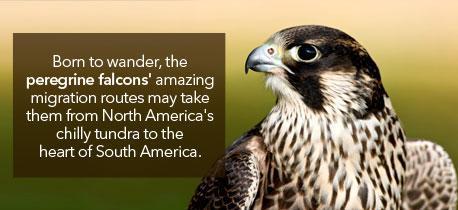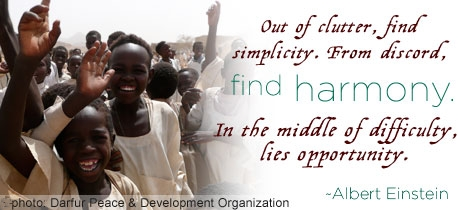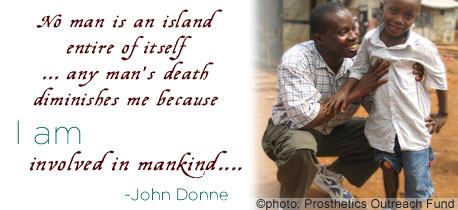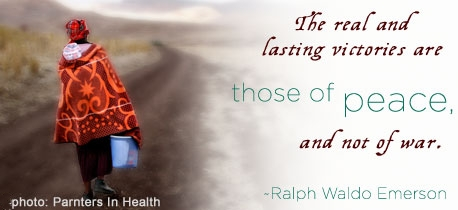Author's Note: I would like you all to know that this task was exceedingly difficult. First of all, I narrowed it down to ten in link and that was hard enough. But I decided to organize them into a list like this, and that was tremendously hard. All of the people on this list beat out heavy competition, and I respect the one in tenth place as much as I respect the one in first place. There was a lot of switching around. Also, this list is incredibly biased.
link was a photojournalist from South Africa who committed suicide after winning the Pulitzer for his photograph of a starving Sudanese toddler. Kevin makes this list because I feel that his actions should be recognized and commended as human rights efforts, because he told a story that not a lot of the world at the time was hearing. He captured the brutality of South African Apartheid and the horrors of famine and war in Africa as a struggling continent. It is photographers like Carter, less famous but equally appreciated, who brought the devastation of Africa, particularly Apartheid, into the unflattering light of the world, and the global community could see the truth of what was going on. Photographing this takes a toll on a person's soul, and Carter killed himself, burdened by these nightmare images until his death. His suicide note reads: "I am haunted by the vivid memories of killings & corpses & anger & pain ... of starving or wounded children, of trigger-happy madmen, often police, of killer executioners."
9) Eleanor Roosevelt
link is probably best known as the wife of Franklin Delano Roosevelt, who was the thirty-second president of the United States. However, she was also the US delegate to the UN General Assembly (appointed by Truman), and chairwoman of the committee that drafted the Universal Declaration For Human Rights. She also co-founded link, a self-described "non-profit, nonpartisan organization, [and a] clear voice for democracy and freedom around the world." She, like plenty of the women on this list, did a lot during a time when women of her nation weren't expected to do much of anything at all. And it is for this reason that I salute her and her works and include her on this list.
8) Václav Havel
link is not just a human rights activist, but also a writer, dramatist, tenth president of Czechoslovakia and first president of the Czech Republic. Due to political issues, he had to fight the oppressive Czechoslovakian government in order to obtain his secondary degree. Havel co-founded the human rights organization link (named for the link) and the Committee for the Defense of the Unjustly Persecuted (VONS). Though his works were banned, incendiary ideas have their ways of circulating, and soon his manuscripts and especially his plays brought the global spotlight on the Czechoslovakian struggle. Because of these things, Havel was arrested in 1979 and sentenced to four and a half years for "subversion of the republic." His tenacious attitude and brilliant writings for his cause helped him make this list.
7) Asma Jahangir
link is many things, among them a woman, a lawyer, and the head of the Human Rights Commission of Pakistan. Pakistan, rampant with poverty and illiteracy, is a breeding ground for corruption, as well as terrorists who prey on the desperate and manipulate and repress the population. Jahangir fights for equal rights of everyone in Pakistan, particularly women and religious minorities, as well for the rights and proper care of Pakistan's children. "Her willingness to relentlessly defend victims of rape, women seeking divorce from abusive husbands, people accused of blasphemy, her work on the issues of child labor, and her continuous criticism of political parties has made her one of the most controversial figures in Pakistan." (Kazmi, Laila. Women of Pakistan, Asma Jahangir, © Jazbah 2008.) She has made this list because in spite of constant threats to her safety, she stands out as the voice of an oppressed people, and she is (as far as I'm concerned) under appreciated and not often heard of in the western world. At least, not as much as others on this list.
6) Nelson Mandela
It's hard not to recognize the name of link. Mandela joined the African National Congress (ANC) in 1944 and publicly opposed and fought the National Party's apartheid policies. He was arrested on a few occasions, but his imprisonment after he was arrested for attempting to overthrow the government with violent means received international attention when he gave a historical link. Though he was sentenced to life imprisonment, Mandela was released on February 11, 1990, where he was then elected president of the ANC. Mandela makes this list because he became a symbol for his people, and one of the most notable black African leaders ever. He refused to negotiate his political position to obtain his freedom and never backed down.
5) Rachel Corrie
I quote link often, because she wasn't just a woman with a big heart, she was a brilliant poet, and her words rip open your chest and leave you raw. Coupled with the knowledge that she died for her cause, Rachel's story is not only eye-opening, but devastating. Rachel believed in the inherent worth of human life, and struggled with the knowledge that the family she lived with in Rafah, Gaza, dealt with death every day. Her journals, e-mails, and lists depict a vibrant, beautiful soul who hungered for life. She had the urge to bring that passion to those who needed it most. She tried to stand up, for those who had nothing on which to stand. And it was this passion, this desire to share this passion, and her deep empathy for human kind that made her stand up in front of that bulldozer, about to decimate the home of a Palestinian family, and be crushed by it. However, Rachel urges us to remember that we are all human, and we all have our stories. "For a long time I’ve been operating from a certain core assumption that we are all essentially the same inside, and that our differences are by and large situational. That goes for everybody— Bush, Bin Laden, Tony Blair, me, you… Palestinians, everybody of any particular religion. I know there is a good chance that this assumption actually is false. But it’s convenient, because it always leads to questions about the way privilege shelters people from the consequences of their actions. It’s also convenient because it leads to some level of forgiveness, whether justified or not."
4) Martin Luther King Jr
link is the second Nobel prize-winner on this list (and not the last). I won't say much about this great man, though there is much to say, because odds are you've heard it all already. He is famous among Americans in particular as a leader of the African-American civil rights movement. His famously empowering link speech reaches across the generations and is quoted constantly, and cited in the pursuit of human rights. King was assassinated, and became a martyr for his cause. His memory lives on, as Americans still celebrate his birthday. But King is not just a symbol for Americans. He is respected as a champion of equal rights, and he never backed down. It is for these reasons that he makes this list.
3) The Dalai Lama
His Holiness link, born Lhamo Dhondrub, is the fourteenth Dalai Lama, spiritual and exiled political leader of Tibet. He is the loudest voice for the Tebetan cause, and preaches understanding and compassion above all else. Tibet is third on his "important commitments" list, preceded by the promotion of human rights and values, and the promotion of religious harmony and peace. He also received the link for his work in 1989. He said he accepted the award on behalf of the Tibetan people, who “confront a calculated and systematic strategy aimed at the destruction of their national and cultural identities.” (link). The Dalai Lama continues to fight the fight of the Tibetan people, for equality and freedom from oppression from China. His philosophy of promoting human understanding should stand alone, but his activism and love of his people is what put him so high up on this list.
2) Mahatma Gandhi
link is another man I could spend hours on, but like with King, he's famous enough that his achievements are already fairly well-known. Ghandi is best known for his passive resistance and civil disobedience, a term borrowed from Henry David Thoreau, but he was also heavily influenced by Tolstoy and Jesus Christ. He called this practice "Satyagraha" which is Sanskrit for "truth and firmness." Gandhi constantly taught nonviolent resistance to Indian victims of inequality in South Africa and India. He campaigned for Indian home rule, and never called for violence. He went on hunger strikes to prove his point. His name has even become an "ism" in the English language, and an adjective ("Gandhian"), both of which generally references his principals of nonviolent noncooperation. He left a vast imprint on the world, and inspired millions, as well as achieved his goals. He is now respected globally, and though he was assassinated, like many on this list, his ideas, actions, and words have transcended death and entered history and our hearts. When the Dalai Lama was awarded the Nobel peace prize in 1989, the chairman of the committee stated that it was "in part a tribute to the memory of Mahatma Gandhi." Though Gandhi himself did not receive a Nobel prize, he was nominated for it five times. The committee has often expressed regret at the omission, and in 1948, the year of Gandhi's death, no award was given with the reason that there was "no suitable living candidate." There shouldn't be any question as to why he is included on this list.
1) Aung San Suu Kyi
I must confess that one of the main reasons Aung San Suu Kyi tops this list is that her plight is not only shocking, but still ongoing. While the Dalai Lama struggles for Tibet, she struggles for the rights of the Burmese people. The rightful president of Burma, she is under house arrest, and is though she is the recipient of the link she remains imprisoned. She is separated from her children, and her husband was refused reentry into the country when he was diagnosed with prostate cancer. She never saw him again as he died in 1999. The struggle in Burma has not improved since twenty years ago. There is no dialog between Suu Kyi and Than Shwe's oppressive government. The UN has tried and failed to intervene. Aung San Suu Kyi is the only voice Burma has, and she is threatened at every turn. I urge you to visit link and sign up. Spreading awareness is the best we can do. As we have seen previously, when the global spotlight is on a humanitarian crisis, it tends to change things.
10) Kevin Carter
link was a photojournalist from South Africa who committed suicide after winning the Pulitzer for his photograph of a starving Sudanese toddler. Kevin makes this list because I feel that his actions should be recognized and commended as human rights efforts, because he told a story that not a lot of the world at the time was hearing. He captured the brutality of South African Apartheid and the horrors of famine and war in Africa as a struggling continent. It is photographers like Carter, less famous but equally appreciated, who brought the devastation of Africa, particularly Apartheid, into the unflattering light of the world, and the global community could see the truth of what was going on. Photographing this takes a toll on a person's soul, and Carter killed himself, burdened by these nightmare images until his death. His suicide note reads: "I am haunted by the vivid memories of killings & corpses & anger & pain ... of starving or wounded children, of trigger-happy madmen, often police, of killer executioners."
9) Eleanor Roosevelt
link is probably best known as the wife of Franklin Delano Roosevelt, who was the thirty-second president of the United States. However, she was also the US delegate to the UN General Assembly (appointed by Truman), and chairwoman of the committee that drafted the Universal Declaration For Human Rights. She also co-founded link, a self-described "non-profit, nonpartisan organization, [and a] clear voice for democracy and freedom around the world." She, like plenty of the women on this list, did a lot during a time when women of her nation weren't expected to do much of anything at all. And it is for this reason that I salute her and her works and include her on this list.
8) Václav Havel
link is not just a human rights activist, but also a writer, dramatist, tenth president of Czechoslovakia and first president of the Czech Republic. Due to political issues, he had to fight the oppressive Czechoslovakian government in order to obtain his secondary degree. Havel co-founded the human rights organization link (named for the link) and the Committee for the Defense of the Unjustly Persecuted (VONS). Though his works were banned, incendiary ideas have their ways of circulating, and soon his manuscripts and especially his plays brought the global spotlight on the Czechoslovakian struggle. Because of these things, Havel was arrested in 1979 and sentenced to four and a half years for "subversion of the republic." His tenacious attitude and brilliant writings for his cause helped him make this list.
7) Asma Jahangir
link is many things, among them a woman, a lawyer, and the head of the Human Rights Commission of Pakistan. Pakistan, rampant with poverty and illiteracy, is a breeding ground for corruption, as well as terrorists who prey on the desperate and manipulate and repress the population. Jahangir fights for equal rights of everyone in Pakistan, particularly women and religious minorities, as well for the rights and proper care of Pakistan's children. "Her willingness to relentlessly defend victims of rape, women seeking divorce from abusive husbands, people accused of blasphemy, her work on the issues of child labor, and her continuous criticism of political parties has made her one of the most controversial figures in Pakistan." (Kazmi, Laila. Women of Pakistan, Asma Jahangir, © Jazbah 2008.) She has made this list because in spite of constant threats to her safety, she stands out as the voice of an oppressed people, and she is (as far as I'm concerned) under appreciated and not often heard of in the western world. At least, not as much as others on this list.
6) Nelson Mandela
It's hard not to recognize the name of link. Mandela joined the African National Congress (ANC) in 1944 and publicly opposed and fought the National Party's apartheid policies. He was arrested on a few occasions, but his imprisonment after he was arrested for attempting to overthrow the government with violent means received international attention when he gave a historical link. Though he was sentenced to life imprisonment, Mandela was released on February 11, 1990, where he was then elected president of the ANC. Mandela makes this list because he became a symbol for his people, and one of the most notable black African leaders ever. He refused to negotiate his political position to obtain his freedom and never backed down.
5) Rachel Corrie
I quote link often, because she wasn't just a woman with a big heart, she was a brilliant poet, and her words rip open your chest and leave you raw. Coupled with the knowledge that she died for her cause, Rachel's story is not only eye-opening, but devastating. Rachel believed in the inherent worth of human life, and struggled with the knowledge that the family she lived with in Rafah, Gaza, dealt with death every day. Her journals, e-mails, and lists depict a vibrant, beautiful soul who hungered for life. She had the urge to bring that passion to those who needed it most. She tried to stand up, for those who had nothing on which to stand. And it was this passion, this desire to share this passion, and her deep empathy for human kind that made her stand up in front of that bulldozer, about to decimate the home of a Palestinian family, and be crushed by it. However, Rachel urges us to remember that we are all human, and we all have our stories. "For a long time I’ve been operating from a certain core assumption that we are all essentially the same inside, and that our differences are by and large situational. That goes for everybody— Bush, Bin Laden, Tony Blair, me, you… Palestinians, everybody of any particular religion. I know there is a good chance that this assumption actually is false. But it’s convenient, because it always leads to questions about the way privilege shelters people from the consequences of their actions. It’s also convenient because it leads to some level of forgiveness, whether justified or not."
4) Martin Luther King Jr
link is the second Nobel prize-winner on this list (and not the last). I won't say much about this great man, though there is much to say, because odds are you've heard it all already. He is famous among Americans in particular as a leader of the African-American civil rights movement. His famously empowering link speech reaches across the generations and is quoted constantly, and cited in the pursuit of human rights. King was assassinated, and became a martyr for his cause. His memory lives on, as Americans still celebrate his birthday. But King is not just a symbol for Americans. He is respected as a champion of equal rights, and he never backed down. It is for these reasons that he makes this list.
3) The Dalai Lama
His Holiness link, born Lhamo Dhondrub, is the fourteenth Dalai Lama, spiritual and exiled political leader of Tibet. He is the loudest voice for the Tebetan cause, and preaches understanding and compassion above all else. Tibet is third on his "important commitments" list, preceded by the promotion of human rights and values, and the promotion of religious harmony and peace. He also received the link for his work in 1989. He said he accepted the award on behalf of the Tibetan people, who “confront a calculated and systematic strategy aimed at the destruction of their national and cultural identities.” (link). The Dalai Lama continues to fight the fight of the Tibetan people, for equality and freedom from oppression from China. His philosophy of promoting human understanding should stand alone, but his activism and love of his people is what put him so high up on this list.
2) Mahatma Gandhi
link is another man I could spend hours on, but like with King, he's famous enough that his achievements are already fairly well-known. Ghandi is best known for his passive resistance and civil disobedience, a term borrowed from Henry David Thoreau, but he was also heavily influenced by Tolstoy and Jesus Christ. He called this practice "Satyagraha" which is Sanskrit for "truth and firmness." Gandhi constantly taught nonviolent resistance to Indian victims of inequality in South Africa and India. He campaigned for Indian home rule, and never called for violence. He went on hunger strikes to prove his point. His name has even become an "ism" in the English language, and an adjective ("Gandhian"), both of which generally references his principals of nonviolent noncooperation. He left a vast imprint on the world, and inspired millions, as well as achieved his goals. He is now respected globally, and though he was assassinated, like many on this list, his ideas, actions, and words have transcended death and entered history and our hearts. When the Dalai Lama was awarded the Nobel peace prize in 1989, the chairman of the committee stated that it was "in part a tribute to the memory of Mahatma Gandhi." Though Gandhi himself did not receive a Nobel prize, he was nominated for it five times. The committee has often expressed regret at the omission, and in 1948, the year of Gandhi's death, no award was given with the reason that there was "no suitable living candidate." There shouldn't be any question as to why he is included on this list.
1) Aung San Suu Kyi
I must confess that one of the main reasons Aung San Suu Kyi tops this list is that her plight is not only shocking, but still ongoing. While the Dalai Lama struggles for Tibet, she struggles for the rights of the Burmese people. The rightful president of Burma, she is under house arrest, and is though she is the recipient of the link she remains imprisoned. She is separated from her children, and her husband was refused reentry into the country when he was diagnosed with prostate cancer. She never saw him again as he died in 1999. The struggle in Burma has not improved since twenty years ago. There is no dialog between Suu Kyi and Than Shwe's oppressive government. The UN has tried and failed to intervene. Aung San Suu Kyi is the only voice Burma has, and she is threatened at every turn. I urge you to visit link and sign up. Spreading awareness is the best we can do. As we have seen previously, when the global spotlight is on a humanitarian crisis, it tends to change things.




























